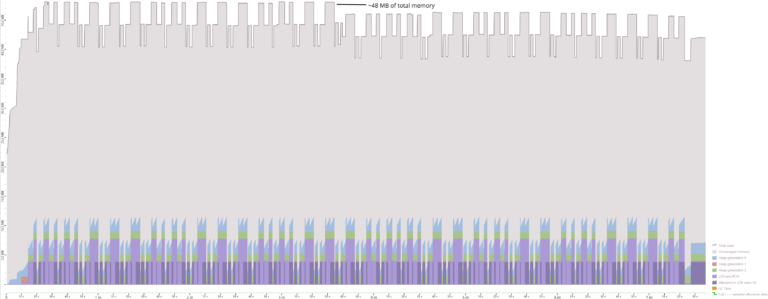The LINQ extension method GroupBy is a special one, sometimes it works and sometimes it throws an exception. One of the use cases that are supported is the usage of an aggregate function right after calling GroupBy:
var productCount = Context.Products __
.GroupBy(p => p.GroupId)
.Select(g => new
{
GroupId = g.Key,
Count = g.Count()
})
.ToList();
The generated SQL statement is the one we expect:
SELECT p.GroupId, COUNT(*) AS Count
FROM Products AS p
GROUP BY p.GroupId
The previous use case is simple and very limited in its usefulness. A use case that I see in the projects more often is something like: „Give me the first/last product for each group ordered by columns x, y„. The query that comes to mind first is:
var firstProducts = Context.Products
.GroupBy(p => p.GroupId)
.Select(g => g.OrderBy(p => p.Name).FirstOrDefault())
.ToList();
Looks good but leads to an InvalidOperationException. To get the desired result without using the method GroupBy is to start the LINQ query with ProductGroups and use the navigational property Products.
var firstProducts = Context.ProductGroups
.Select(g => g.Products.OrderBy(p => p.Name).FirstOrDefault())
.ToList();
Remarks: If a group has no products then
nullis going to be pushed into our listfirstProducts. Most of the time these nulls are of no use and should be filtered out.
The generated SQL is using the window function ROW_NUMBER for grouping.
SELECT t0.*
FROM
ProductGroups AS p
LEFT JOIN
(
SELECT *
FROM
(
SELECT *, ROW_NUMBER() OVER(PARTITION BY p0.GroupId ORDER BY p0.Name) AS row
FROM Products AS p0
) AS t
WHERE t.row <= 1
) AS t0 ON p.Id = t0.GroupId
In the end we can say that the support of GroupBy has been improved in version 3.0. The queries that have been evaluated on the client are now translated to SQL and executed on the database. The only drawback is that we need to rewrite our LINQ queries sometimes.









